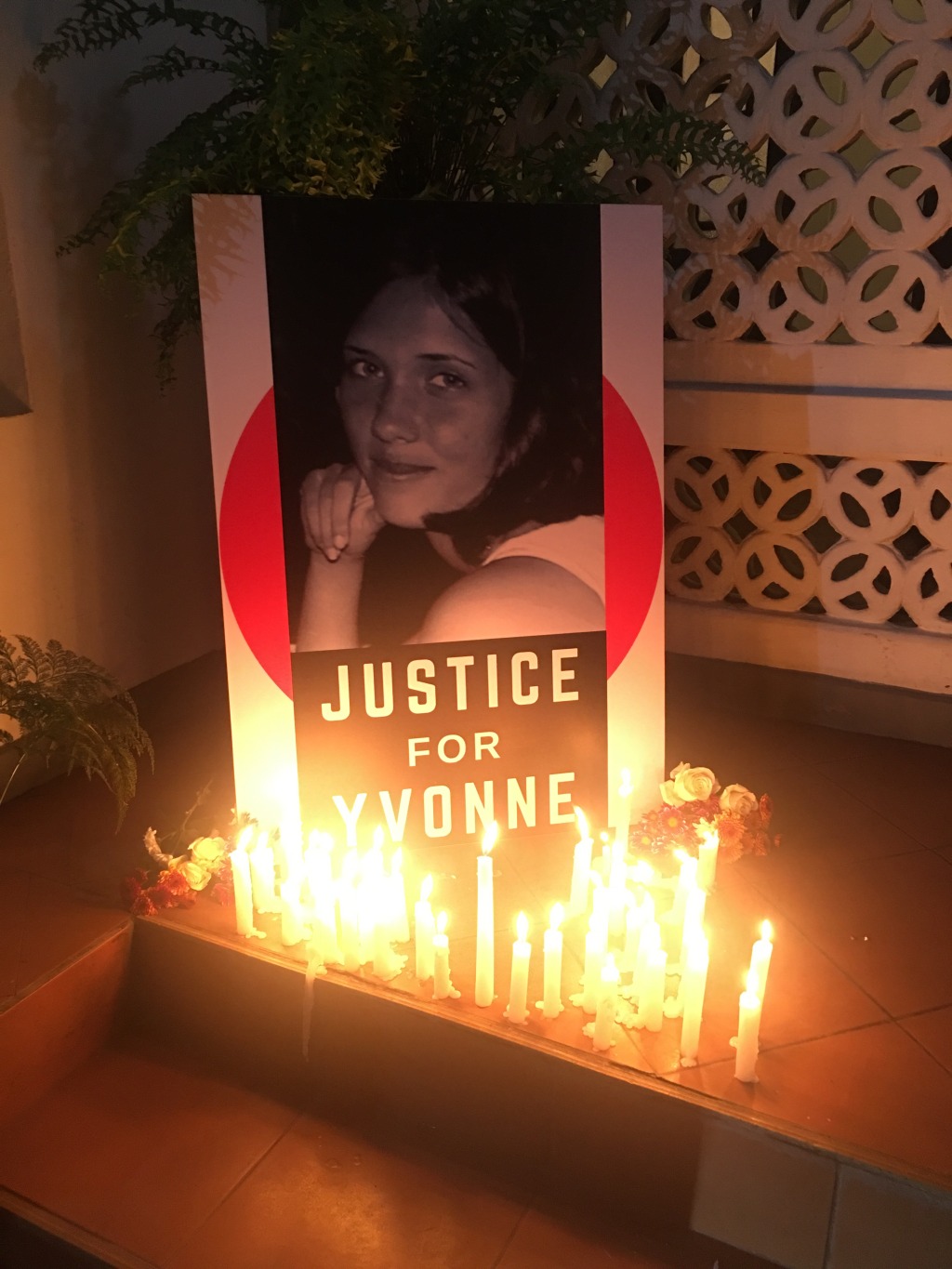
(I was asked by the family and friends of Yvonne Jonsson to share some thoughts on the evening of a memorial for her, organized in Colombo. Below is the slightly edited transcript of that short address. Here is a statement by women’s rights activists for additional context.)
[Name and intro]
I am an activist and researcher and I work in Colombo with a feminist women’s rights organization established in 1984; advocating for the strengthening of women’s access to justice in Sri Lanka, and for an end to all forms of violence against women and gender-based violence, has been and continues to be central to our mission.
I didn’t know Yvonne myself. So I am deeply grateful to Yvonne’s family and friends for giving me this time and space to address all of you. It is a truly remarkable thing and I applaud it. It means that those who loved Yvonne want her memory to continue being kept alive not only for the immense importance it has to those who wish to remember and celebrate her — but also in the service of a greater vision of a world free from violence for all women. I appreciate your belief that other women should not go forgotten this evening either.
I didn’t know Yvonne but I do know many people who loved and cherished her. I didn’t know Yvonne but I have myself experienced the pain of losing the people I loved the most. And that is why I wanted to begin by expressing my gratitude to you for having me here, and by extending my solidarity to you all in this time.
A study published last year by the United Nations Populations Fund (or UNFPA) examined the causes behind unnatural deaths of women in Sri Lanka. Studying 729 unnatural deaths, it found that over a third of unnatural deaths of women were caused as a result of some manifestation of intimate partner violence or by someone close to the victim. It also found that only 5% of these deaths were the result of ‘robberies’ or home invasions — we can presume, at the hands of strangers. 36% were committed by the husband, partner, or a former lover, while 21% of them were by relatives.
This culture of violence against women is further sustained by the fact that it is almost impossible for women survivors or victim’s families to ever get justice.
It has been found that within the justice system in Sri Lanka, in most cases, it can take an average of between 5 to 8 years from the time of the offence committed to the time of trial (Lawyers for Human Rights and Development 2012). Out of 8,702 sexual violence cases filed between 2012 and 2016, 98% were still pending at the end of 2016 (Law and Society Trust 2018).
Yvonne’s murder and the subsequent injustices heaped upon her loved ones and her memory, most significant of which is the recent pardon of her killer, is emblematic of the scourge of gender-based violence and the inequalities and injustices we experience when we come face to face with our justice system.
As we’ve heard, and as women have been saying all along, women are much more likely to be attacked or hurt by someone they know, or even trust, rather than a stranger. This is practically a universal truth. Further, more often than not, men who commit violent crimes against women are typically those who have an established record of similar acts of violence, or other acts which reveal misogynistic attitudes. We know through Caroline’s brave statements, that Yvonne’s murderer was someone with an established history of violent and controlling behaviour, including but not only towards women close to him, which went more or less unchecked by the society in which he lived. His behaviour had become normalized.
Finally, Yvonne’s murder reminds us that the system through which we are meant to access justice is riddled with flaws and only serves to heighten inequalities prevalant already within society. Through the simple stroke of the pen of an Executive President, a verdict from the highest court of the land can be reversed and a murderer can be set free. Somehow, the violent and premeditated murder of a young woman does not seem bad enough a crime to deem someone dangerous to society and capable of further harm.
In 2016, in a comparison of the perpetrators of several mass-shootings across Europe and the US, it was found that all of them had a recorded history of domestic violence or grievances against women.
The unspeakably cruel act of violence which took Yvonne’s life, reminds us that we should take acts of violence against women and gender-based violence very, very seriously, even at times when those who govern us do not. It reminds us that expressing solidarity with someone experiencing intimate partner violence or violence at the hands of someone they know, could be a life-saving act. It reminds us that calling out misogyny when we see it or hear it, even if it is not directed at us in that instance, may be a life-saving act.
Today and for the future, in our anger and despair, I hope we find the ability to care for each other, and to keep hoping. I join you in prayer, in expectation that our collective strength and resilience will prevail now and always.

Leave a comment